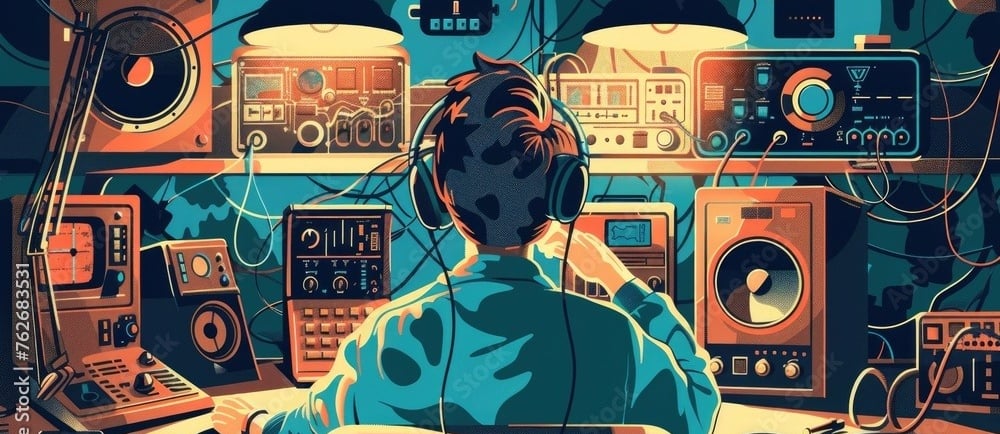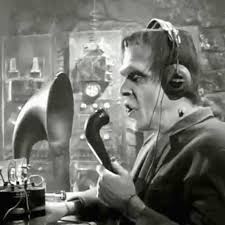What in the World is Ham Radio
Ever wonder what amateur radio aka ham radio is all about, then bookmark this website and come back to find out
HAM RADIO
Marcus Onate Ka9cut
5/6/20253 min read


What in the World is Ham Radio?
Unlocking the Mysteries of Amateur Radio
Ever stumble across the term "ham radio" and wonder what it's all about? It might conjure up images of crackling radios in dusty basements, but the reality of amateur radio, officially known as the Amateur Radio Service, is far more vibrant and diverse than you might imagine. So, let's tune in and explore this fascinating world!
At its core, the Amateur Radio Service is a globally recognized, licensed hobby that allows people to communicate with each other across distances using radio waves. Unlike commercial radio services that broadcast to a wide audience, ham radio is primarily about two-way communication between individuals. Think of it as a global community connected by the airwaves.
But it's more than just chatting. The Amateur Radio Service is unique because it's driven by self-training, intercommunication, and technical investigation. Hams are encouraged to learn about radio technology, experiment with different equipment and antennas, and provide communication during emergencies when other infrastructure fails.
Who are these "hams"? They come from all walks of life – students, engineers, doctors, retirees, and everyone in between. What unites them is a shared interest in radio communication and a desire to connect with others.
So, what do amateur radio operators actually do? The possibilities are surprisingly broad! Here are just a few popular activities:
Making Contacts (QSOs): This is the bread and butter of ham radio. Operators use their radios to connect with other hams locally, across the country, or even around the world. These "QSOs" (a common abbreviation for contact) can be short exchanges of signal reports and locations, or longer conversations about shared interests. Imagine chatting with someone in Japan or Australia using nothing but the power of radio waves!
DXing (Distance Communication): For many hams, the thrill lies in making contact with distant stations. "DX" is shorthand for "distance," and DXing involves honing skills and equipment to reach far-flung corners of the globe. It's a bit like a global treasure hunt on the airwaves.
Contesting: Radio contests are organized events where hams try to make as many contacts as possible within a specific timeframe. These competitions can be highly engaging and a great way to test your operating skills and equipment.
Emergency Communications (EmComm): This is a vital public service aspect of amateur radio. In times of natural disasters or other emergencies, when traditional communication networks are down, trained and equipped ham radio operators can provide crucial communication links for emergency responders, hospitals, and affected communities. Their ability to operate independently of infrastructure makes them invaluable.
Experimentation and Technical Building: Many hams are tinkerers at heart. They enjoy building their own radios, antennas, and other equipment. This hands-on experimentation fosters a deep understanding of radio technology and allows for innovation within the hobby.
Digital Modes: Beyond voice communication, hams utilize various digital modes to send text messages, images, and even connect to the internet without traditional internet service. Modes like FT8, PSK31, and APRS (Automatic Packet Reporting System) offer unique ways to communicate and share information.
Satellite Communication: Some advanced amateur radio operators even communicate through orbiting satellites, bouncing their signals off these space-based repeaters.
Foxhunting (Direction Finding): This fun activity involves using radio direction-finding techniques to locate hidden transmitters ("foxes"). It's a blend of technical skill and outdoor adventure.
Getting Involved:
Intrigued? Getting started in ham radio involves obtaining a license from your country's regulatory body (in the United States, it's the FCC). This typically requires passing an exam that covers basic radio theory, regulations, and operating procedures. There are also many local amateur radio clubs that offer support, training, and a welcoming community for newcomers.
So, the next time you hear about "ham radio," remember it's more than just an old-fashioned hobby. It's a dynamic community of individuals passionate about radio communication, technical exploration, and public service – a world of possibilities waiting to be discovered on the airwaves. Who knows, you might just find your callsign echoing around the globe one day!
Ham Radio Basics
Your guide to becoming a ham radio operator.
© 2025. All rights reserved. KA9CUT
info@hambasics.com

